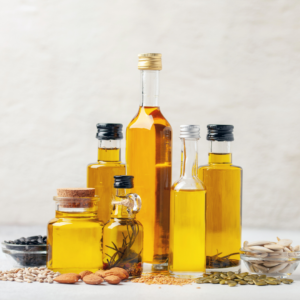Ask the allergist is a regular feature in our newsletters where Canadian allergists answer your questions.
Please note: The allergists featured in this series answer questions on general topics, please talk to your doctor if you have questions about your own health or the health of your child.
This month Dr. Julia Upton answers a question about food allergy and cooking oil.
Do I need to avoid cooking oil made from the food to which I am allergic (e.g., peanut, tree nuts, soy, sesame)?

Oils can be refined or unrefined, and “highly refined” refers to a manufacturing process whereby the amount of protein in a product has been significantly reduced, or in some cases removed. This process can vary with manufacturers.
In general, highly refined oils are usually tolerated by those with an allergy to a particular food. These oils contain a very small amount of protein, and it’s usually the protein which causes an allergic reaction in those with a food allergy. Before consuming products with highly refined oils, you should discuss with your allergist to determine if these products can be an option for you.
Notes from Food Allergy Canada:
If a highly refined oil is an ingredient in a product, it can be listed in the ingredient list, but may not be called out in the “Contains” statement, if used. The only exception to this is peanut oil, which must always be declared (listed in the ingredient list or in a “Contains” statement that follows the list). Manufacturers must be able to provide evidence that their highly refined oil contains very little or no residual protein and are not considered to be of concern for those with a particular food allergy. Additional information can be found on the Health Canada site.
It’s important to always read the ingredient list and to understand the food allergen included in a product. If you’re not sure if it’s safe for you, speak to your allergist before eating the product.
Learn more

Dr. Julia Upton is on staff at the Hospital for Sick Children in the Immunology and Allergy Department; and an Associate Professor in the Department of Paediatrics at the University of Toronto. She is the past Section Chair of the Anaphylaxis and Food Allergy Section of the Canadian Society of Allergy and Clinical Immunology. Dr. Upton is also a member of our Healthcare Advisory Board.
Please note: Dr. Upton is answering as an individual allergist and her answers do not constitute an official position of her affiliated organizations. Her responses are for informational purposes only and do not constitute specific medical advice, recommendations, diagnosis, or treatment. Please talk to your doctor about any concerns or questions you may have regarding your own health or the health of your child.
Do you have a food allergy-related question you’d like to ask an allergist in the months to come? If so, send it along to us at info@foodallergycanada.ca.
Tags: ask the allergist



